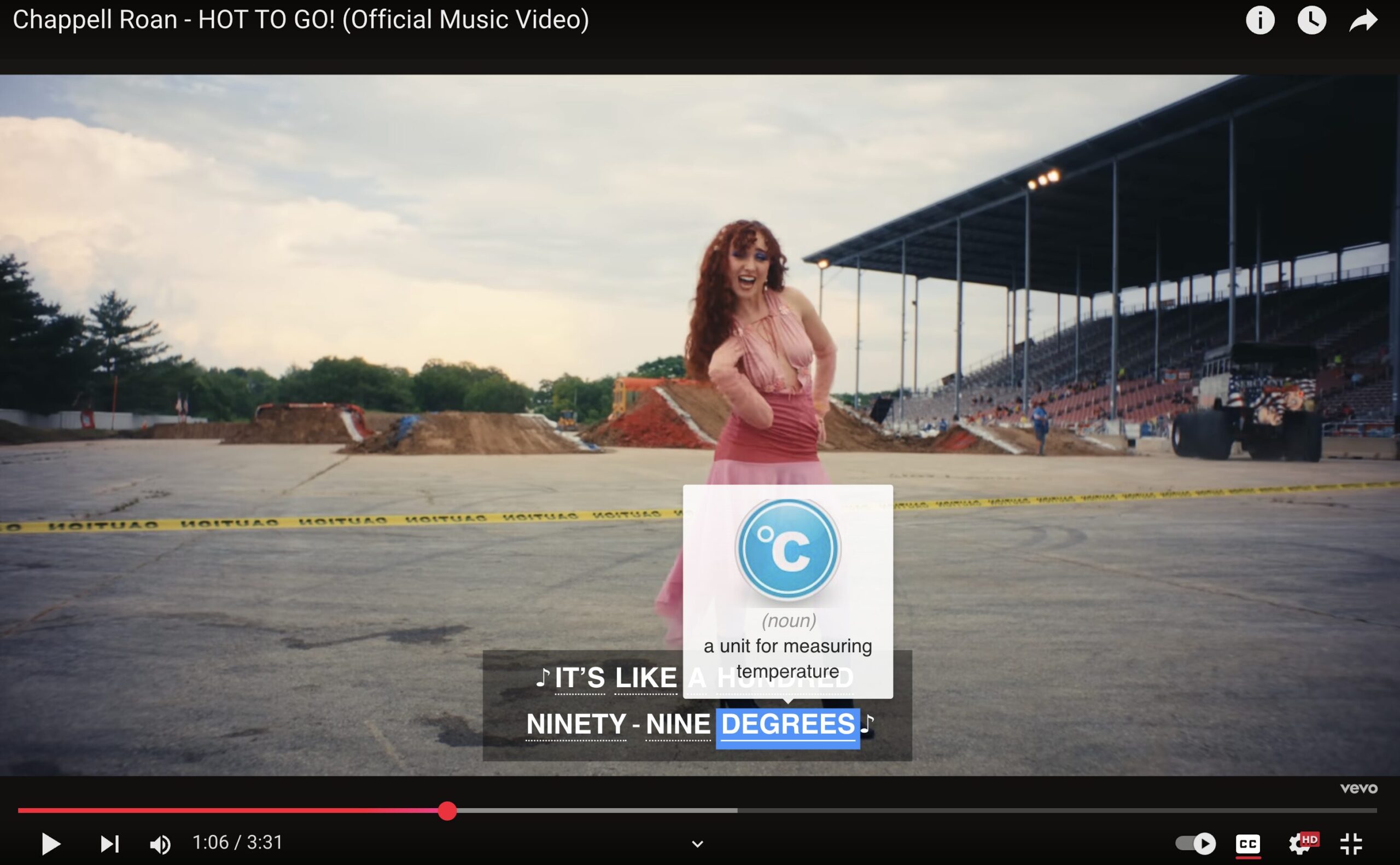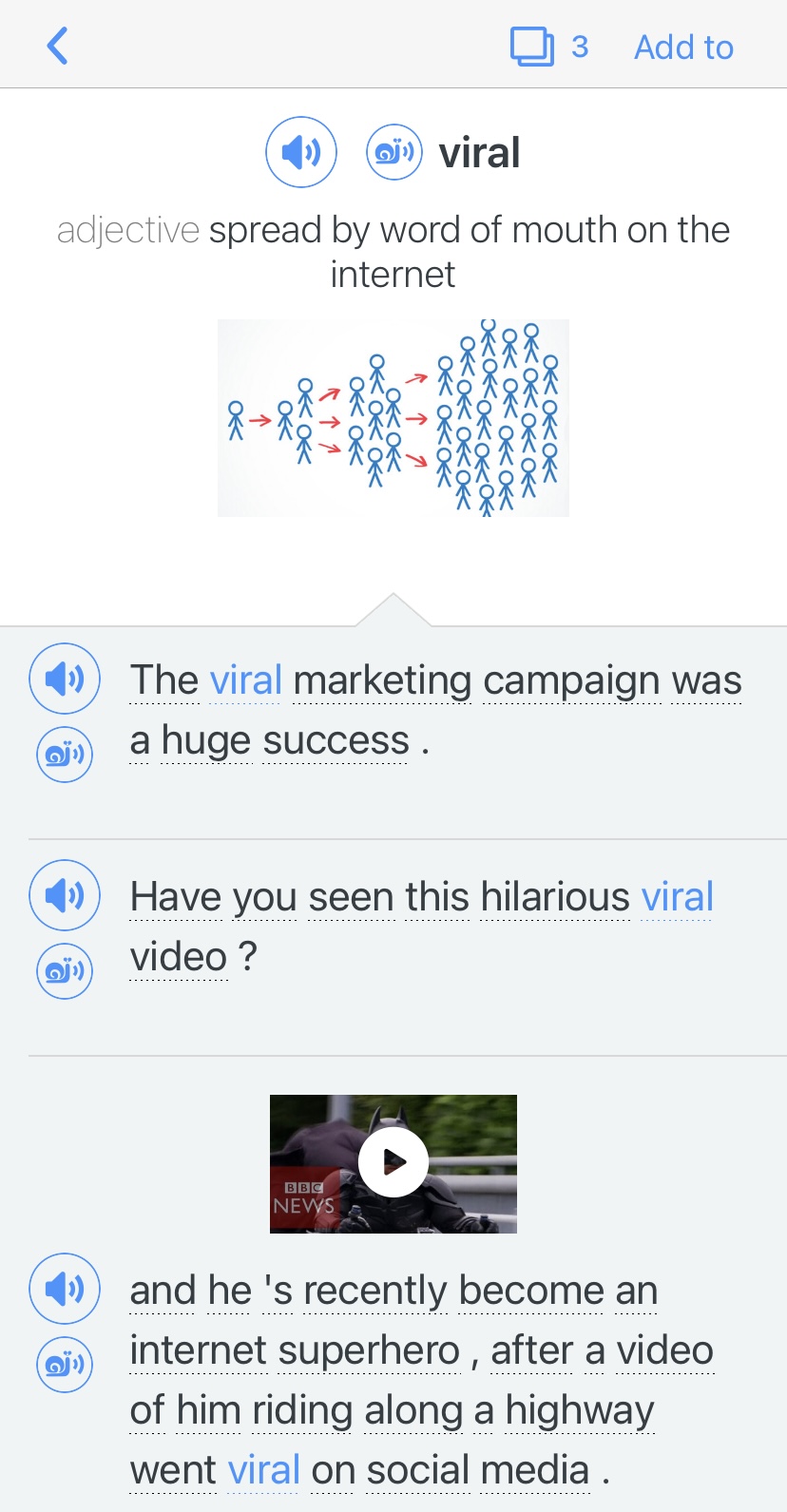Learn English Through Movies and Film

English movies will have you practicing your pronunciation with their songs to falling in love with characters’ love stories.
That’s why I want to share my favorite films to learn English with movies, and give you some tips to help you learn new words and phrases while you watch (with and without subtitles).
You can rest assured that at least one of the strategoes on this list will be compatible with your own movie-watching preferences.
Okay—let’s press play!
Download: This blog post is available as a convenient and portable PDF that you can take anywhere. Click here to get a copy. (Download)
Tips to Learn English Through Movies and Films
- Choose movies you already know. If you’re a beginner or a lower level, it’s best to choose a movie you’ve already watched. Since you’ll already know the plot, you can focus purely on the linguistic aspect. Or, watch the movie of an English book you’ve read.
- Choose an interesting movie. If you’re bored, paying attention for more than one and a half hours will be difficult. I remember when I was a child, I had to watch hours and hours of really old movies like “Singing in the Rain” and “Mary Poppins” to learn English. I didn’t hate them, but I didn’t feel excited when watching these films.
- Use subtitles. You don’t have to follow along with them word for word, but subtitles can offer great support when you need some additional help understanding what’s going on.
- Start small. Start with a relatively short movie and avoid any movie that involves a deeper level of understanding of history or culture, as that’s likely going to consume your thoughts and make it harder to focus on the language.
- Break it up. Watching a full movie in only English can be really overwhelming and frustrating, so sometimes it’s better to watch it in smaller bits to avoid getting burned out. For example, you can set a goal to study a 10-minute segment of your movie per day. Or, translate 15 lines from the movie. The FluentU English YouTube channel has tons of scene breakdowns for shorter but more effective language lessons:
- Listen and repeat. If there’s a part you don’t understand, rewind, listen to it again and try to repeat what is being said. This will help you grasp the situation and practice your pronunciation.
- Focus on movies from one country. English is spoken in different countries, and each has variations in accents and language use, so it’s better to stick to one area when you’re trying to learn English. Choose the country which interests you most and start with its movies until you become more confident.
- Watch them with friends. Do you have some buddies who also want to perfect their English skills? Pair up and catch a movie together, then discuss it afterward.
- Keep a movie journal. While watching your movies, pause the video when you hear something that seems useful and write it down in a journal. This way, you’re collecting “authentic” real-life phrases that you can practice and use on your English speaking friends in the future (as long as they aren’t offensive, of course).
- Check out FluentU. If keeping a movie journal and looking up words in your dictionary sounds like a lot of work, and you are open to watching other fun videos, you can also try FluentU. FluentU has thousands of authentic videos for learning English, including movie trailers, music videos, and TV shows. Each video comes with subtitles, definitions and example sentences.
- Select a movie that matches your current English level. For beginners in English, I usually recommend you learn through animated movies. These are usually very friendly and easy to understand. If you try to watch something like “Romeo and Juliet,” you will be very confused.
- Watch with and without subtitles. When you watch a film for the first time, turn on subtitles. For your second viewing, try turning off subtitles. You’ll already know the story from the first time you watched it, so you can try listening for any words that you looked up last time.
- Use a media player. This is one of my favorite tools. Most people use media players to watch movies, but I use it a little differently. Media players allow you to play back movies at half-speed or quarter-speed. If there are parts you don’t understand, just play these back at a slower speed and try again! It’s very helpful for practicing your English listening.
- Bring your dictionary. When you hear a word you’re interested in, look it up! Because you went through the trouble to understand it, you’ll be able to remember that word for a long time. Dictionary apps are perfect for this. Another option is FluentU’s multimedia dictionary, which provides definitions and context.

Why Learning English with Movies and Film Works
You get to learn real English, not textbook English.
The English you learn through textbooks or classes is not what you’ll hear people say on the street.
The English used in movies is very natural. It’s also very close to what you’ll hear if you speak with native English speakers. This will help improve your spoken English.
Plus, listening to the dialogue will help you perfect your English pronunciation.
You learn English words in context.
Usually, when we learn words in school, we study vocabulary lists. The problem with learning new words with vocabulary lists is that you can learn what words mean, but not where and how they are used.
If you learn the word “detective” through watching crime films, you’ll know “detective” can mean many things.
For example, it might be a title before a person (“Detective Beckett”). Or maybe it’s the noun referring to the job (“he’s a detective”). This way, you won’t only learn what each word means, but also how it’s used.
You hear exactly how things are said.
In English, people often say that only 7% of our communication comes from words. So, what about the other 93%?
It’s all about how you say it. Your body language, expressions (like a smile or a frown) and your tone of voice (such as when you sound angry or sad).
For example, take a look at the body language of these three characters in the popular American film Mean Girls:
Through observing actors in films, not only will you be able to learn new words, you will be able to understand how they are said. The characters might be sad, happy, surprised or angry. And you’ll understand this immediately.
Watching movies gives you cultural insight.
You’ll be able to learn more about places that interest you. If you go there, you’ll have a better understanding of the local culture and history.
And if you want something to talk about with your English friends, movies are a great cultural topic.
For example, The Avengers movies are very popular in the United States, and there are lots of pop culture references to them.
And there we have it: my top tips for learning English with movies!
As you can see, I’m super excited about learning English through movies and other video resources. With this, I hope I have convinced you that you can learn English with movies—and have fun while doing it!
And One More Thing...
If you're like me and enjoy learning English through movies and other media, you should check out FluentU. With FluentU, you can turn any subtitled content on YouTube or Netflix into an engaging language lesson.
I also love that FluentU has a huge library of videos picked specifically for English learners. No more searching for good content—it's all in one place!

One of my favorite features is the interactive captions. You can tap on any word to see an image, definition, and examples, which makes it so much easier to understand and remember.
And if you're worried about forgetting new words, FluentU has you covered. You'll complete fun exercises to reinforce vocabulary and be reminded when it’s time to review, so you actually retain what you’ve learned.
You can use FluentU on your computer or tablet, or download the app from the App Store or Google Play. Click here to take advantage of our current sale! (Expires at the end of this month.)













